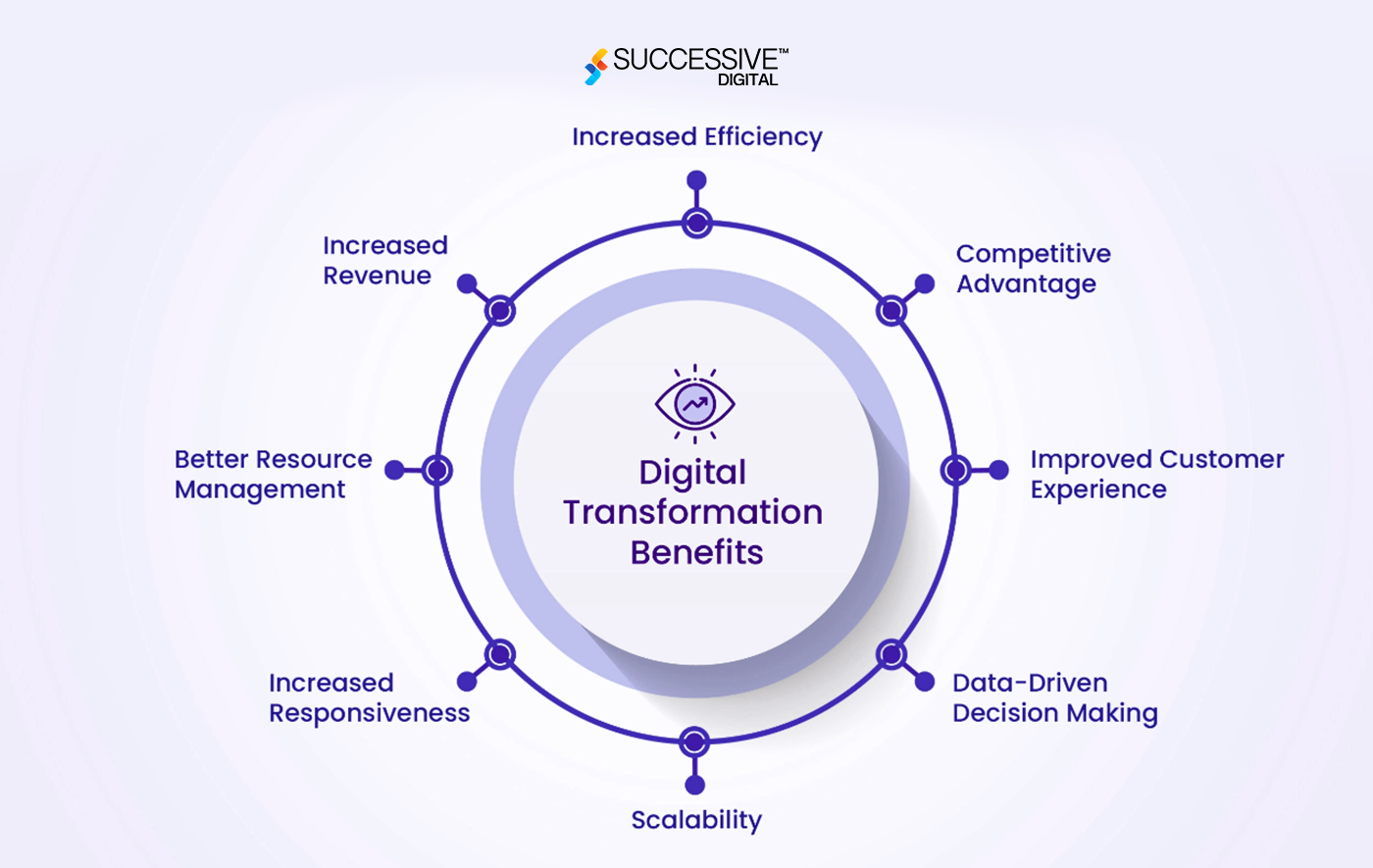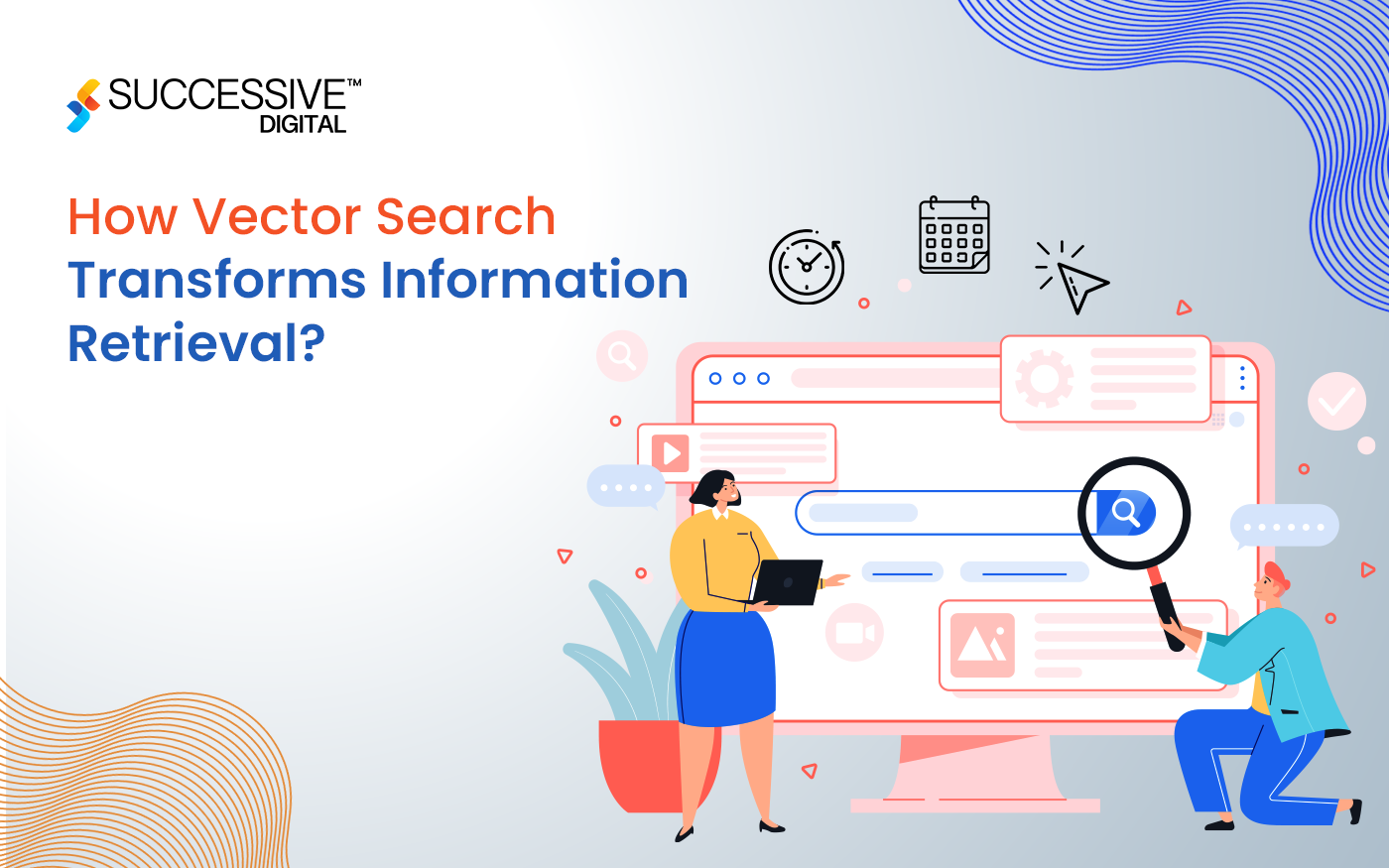The digital transformation strategy consultancy stands as a cornerstone for organizational success. As the world evolves, businesses face the imperative to adapt, innovate, and redefine themselves to remain competitive. However, the path to digital transformation is challenging with limitations, each having unique hurdles to overcome for progress.
Central to these challenges is the worry between culture and innovation—the venture of integrating entrenched legacy systems with cutting-edge technology shaping outcomes. From managing large data repositories to ensuring their protection and integrity and grappling with the intricacies of regulatory compliance, businesses encounter a myriad of complexities in their transformative direction.
Yet digital transformation implementation transcends technology; it mandates a cultural shift, a fundamental reimagining of processes, decision-making frameworks, and value creation. Overcoming digital transformation obstacles, fostering an innovative way of work, and empowering employees to adopt modern methodologies are pivotal to successful transformation endeavors.

This blog explores the top 11 critical challenges that businesses must address during their digital transformation journey. Through insightful exploration and strategic guidance, it seeks to equip companies with the tools needed to navigate these barriers correctly and emerge more resilient, agile, and successful.
-
Data Management and Governance
Effective data management and governance are paramount in the digital age, encompassing quality, consistency, and safety. With IT infrastructure modernization, businesses grapple with various data resources and formats, necessitating robust frameworks, which include information lakes and AI-driven analytics, to make sure regulatory compliance, information integrity, and knowledgeable decision-making while navigating the complexities of modern data ecosystem.
-
Cybersecurity Threats
Cybersecurity threats pose challenge to digital transformation implementation, encompassing ransomware, data breaches, and more. With an increasing number of state-of-the-art attack vectors, businesses face the daunting tasks of fortifying defences through proactive threat detection, robust authentication mechanisms, encryption protocols, and employee cybersecurity education to protect sensitive data, maintain trust, and mitigate brand damages.
-
Legacy Systems Integration
Legacy structures integration is one of the formidable digital transformation obstacles, requiring businesses to bridge the gap between old infrastructure and current digital solutions. With complexities ranging from information silos to interoperability troubles, successful digital transformation planning and integration demands strategic plans, middleware solutions, and phased migration methods to decrease disruptions and maximize efficiency.
-
Talent Shortage
The talent shortage in the tech domain is one of the major digital transformation obstacles. Demand for professional experts in areas like data management, science, and cybersecurity outstrips supply. To deal with this undertaking, businesses are also investing in digital transformation strategy consultancy, upskilling tasks of the workforce, fostering non-stop knowledge development, and providing competitive compensation programs to attract and retain top talent.
-
Cultural Resistance to Change
Cultural resistance to change presents a powerful barrier to digital transformation planning. Employees, managers, and stakeholders may resist to new technology and techniques because of fear, uncertainty, or ingrained conduct. Overcoming resistance demands apparent communication, leadership buy-in, and nurturing a culture of innovation and adaptability to drive business success.
-
Scalability and Flexibility
Scalability and versatility are essential for adapting to dynamic marketplace needs and crucial digital transformation success factors. Traditional architectures frequently need more agility, hindering rapid scaling and IT infrastructure modernization. Embracing cloud-based technology, containerization, and serverless computing empowers businesses to scale assets on on-demand, improve time-to-market, and swiftly respond to evolving business needs, ensuring competitiveness and resilience.
-
Regulatory Compliance
Regulatory compliance is an essential challenge in digital transformation planning, with stringent regulations governing data privacy and security. Organizations need to navigate complex legal space, ensuring adherence to regulations like GDPR and CCPA. Robust compliance measures, including information encryption and everyday audits, are critical to mitigate risks and maintain trust with stakeholders.
-
Customer Experience
Exceptional customer experience is pivotal in digital transformation strategy consultancy, driving loyalty and differentiation. Businesses must seamlessly integrate customer touchpoints and leverage data insights for personalization. Additionally, adopting omnichannel engagement systems and AI-driven analytics enables businesses to anticipate customer wishes, deliver customized reports, and foster long-term relationships in the digital age.

-
Digital Ecosystem Integration
Integrating disparate digital systems is a digital transformation obstacle in the interconnected business landscape. This entails working with partners and leveraging APIs for interoperability. Open requirements and data exchange protocols facilitate smooth integration, allowing companies to unlock new synergies, drive innovation, and enhance agility in the digital environment.
-
Change in Business Models
Digital transformation necessitates a shift in business models to capitalize on rising opportunities. This entails taking advantage of digital transformation strategy consultancy, agile methodologies, experimenting with new sales streams, and pivoting towards platform-based models. By adapting to changing marketplace dynamics and harnessing digital technologies, businesses can power innovation increase competitive advantage in the digital world.
-
Total Cost of Ownership
Managing the total cost of ownership (TCO) is critical in digital transformation to ensure ROI. This digital transformation planning includes calculating and optimizing costs across technology infrastructure, software program licenses, and talent acquisition. Cloud computing and subscription-based models provide cost-effective options, allowing businesses to maximize value and mitigate financial risks associated with digital initiatives.
Conclusion
Business transformation in modern-day dynamic space is a complicated and multifaceted journey that challenges organizations, and digital transformation obstacles are major roadblocks to growth. From legacy systems integration to cultural resistance and regulatory compliance, overcoming such challenges requires strategic planning, technological innovation, continuous development, and Digital transformation consulting. By addressing vital challenges and leveraging today’s technological improvements, businesses leverage new opportunities, power enterprise growth, and thrive in the digital age.












